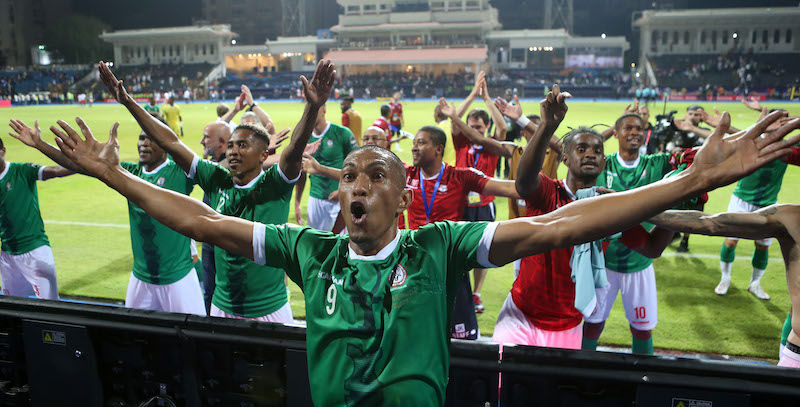The story of Madagascar’s run to the quarterfinals of the Africa Cup of Nations is already one of the great tales from this year’s tournament … and the question is now how far the COSAFA nation can go in the competition.
Madagascar defeated DR Congo on penalties on Sunday to seal a quarterfinal against either Ghana or Tunisia, this after they had topped their first- round pool following an historic 2-0 win over Nigeria.
For a team making their debut at this level, it is a wonderful achievement, but is also made even more remarkable by the fact that the Malagasy Football Federation is currently being run by a standardization committee appointed by FIFA.
The position of federation president remains vacant, though it is hoped it will be soon filled, but this has not hindered the squad in emerging as a top side on the continent, in part due to their relative success at the COSAFA Cup since 2015.
Madagascar have used the regional competition to blood talent at international level and several players have emerged through the tournament. They are now reaping those benefits under French coach Nicolas Dupuis, who has also reached out to the country’s diaspora in Europe to add experience.
Madagascar have the oldest squad at the tournament at 28.7 years, but also a ‘togetherness’ that means they are all pulling in the same direction. Other nations have far more stars in their squads, but few have the spirit of the Malagasy.
“The star is the team. It’s a team of friends,” Dupuis told AFP. “Our secret is cohesion.
“I watched our game against the DR Congo, a 6-1 loss [in June 2016], and none of those players are in the current squad,” Dupuis adds. “The squad has changed, the way we run the team, the staff, the equipment, the accommodation and the trips, everything is done with professionalism.”
Saudi Arabia-based Carolus Andriamatsinoro says the arrival of Dupuis, and his influx of French-based stars, has made a massive difference for the side.
“Since the arrival of the coach, things have changed a lot. There were mainly local players before. The coach started to supervise the players who played in France and other championships. That’s how the team became better.”
And captain Faneva Imà Andriatsima says the team has no intention of ending their Nations Cup run in the quarterfinals, once they do find out their opponent later on Monday.
“What will help us to go further in the tournament is the collective strength. We know that we are not tall and less physical compared to other African teams. We must fill this physical deficit with solidarity,” he says.

